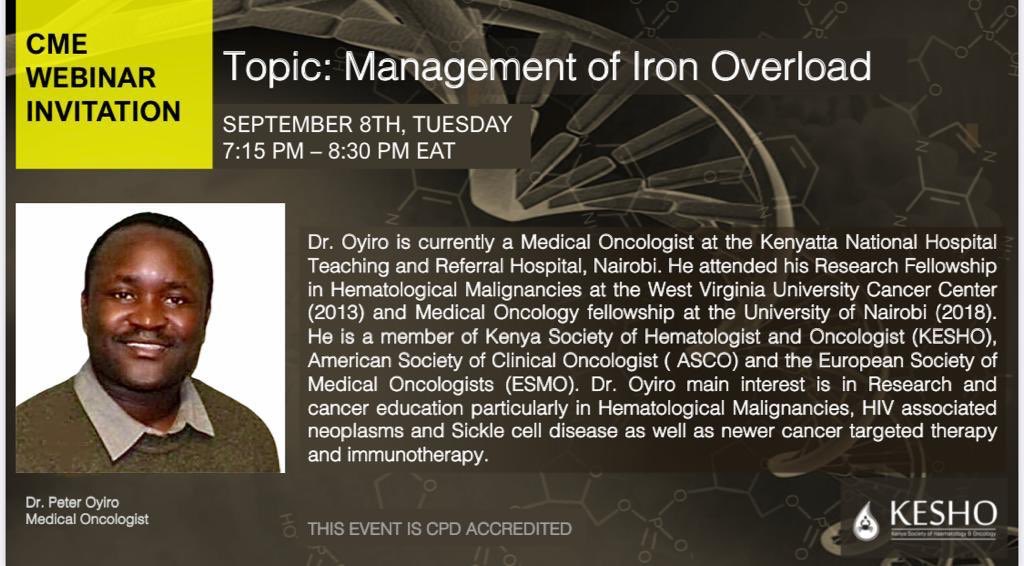
- This event has passed.
Management of Iron Overload

Moderator: Dr. Paresh Dave
Sponsor: Novartis
Presenters:
- Peter Oyiro, Medical Oncologist Kenyatta National Hospital Teaching and Referral Hospital
Iron overload is a poly etiologic condition characterized by a moderate to severe increase in the body iron that has or will have negative effects secondary to iron deposition in tissues or body organs. It may be hereditary or acquired. It is important to detect the disease before organ damage occurs. Iron overload affects overall survival partly due to the underlying biology of the disease but also because of the sequelae of iron overload, including cardiomyopathy, cardiac events, liver disease, and the development of diabetes. For patients with higher serum ferritin levels, the 100-day post-transplant mortality is worse with inferior overall survival (OS) and a higher rate of graft vs host disease. Therefore, iron chelation therapy can improve OS and is effective at reducing serum ferritin levels, cardiac events, and diabetes in patients with blood-transfusion-related iron overload. Compliance is highly encouraged to realize successful treatment. The safety profile of each chelator should be evaluated before the initiation of treatment. Patients receiving chemotherapy and who have a drop in blood count parameters require evaluation to find out the causes. Iron studies are required to generate more data. Iron supplementary can be toxic. Patients with severe organ dysfunction can have a combination of iron chelation therapy. Ferritin levels should be done every 3 months. Iron chelation OS is not contraindicated in HIV patients with evidence of iron overload.

